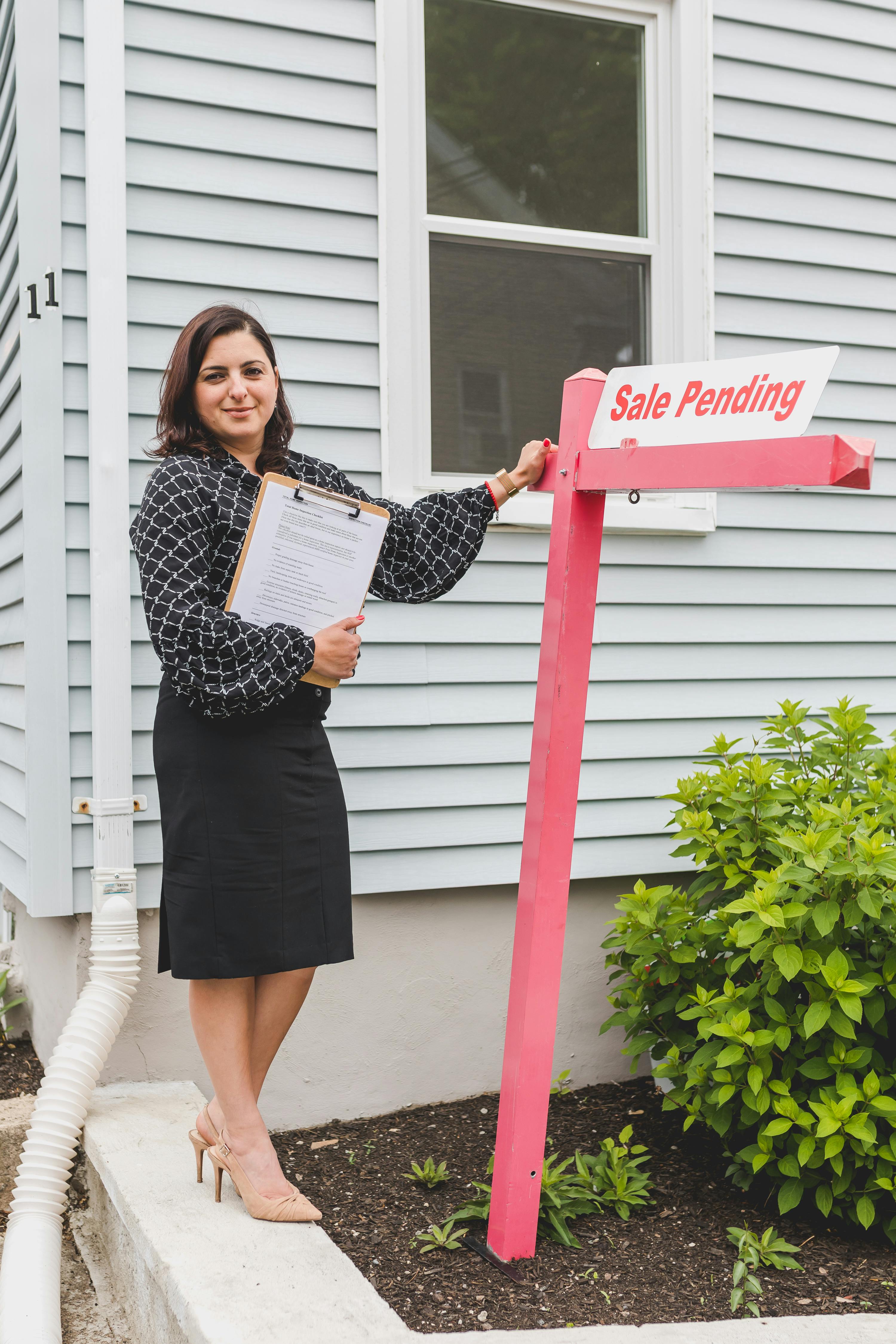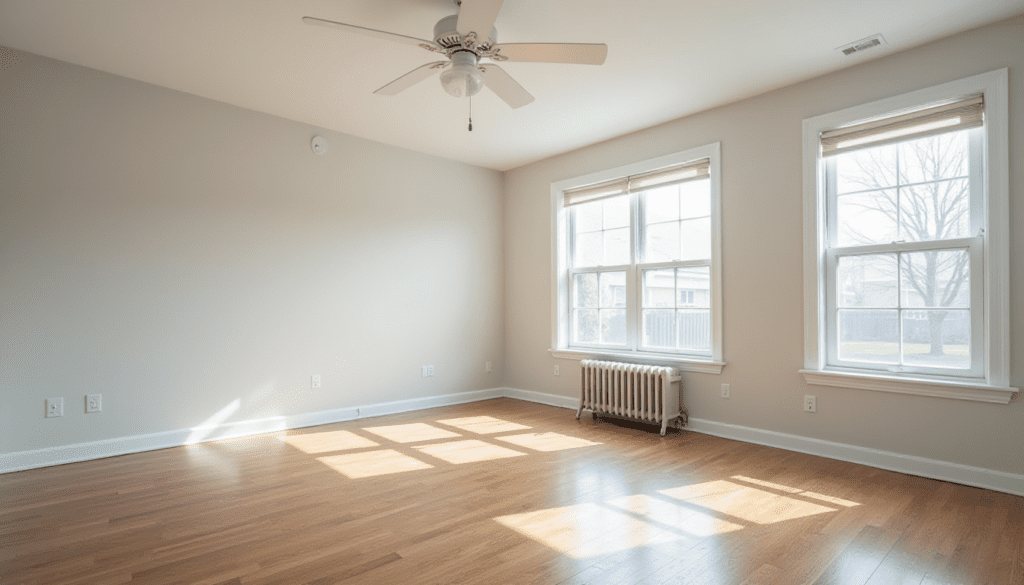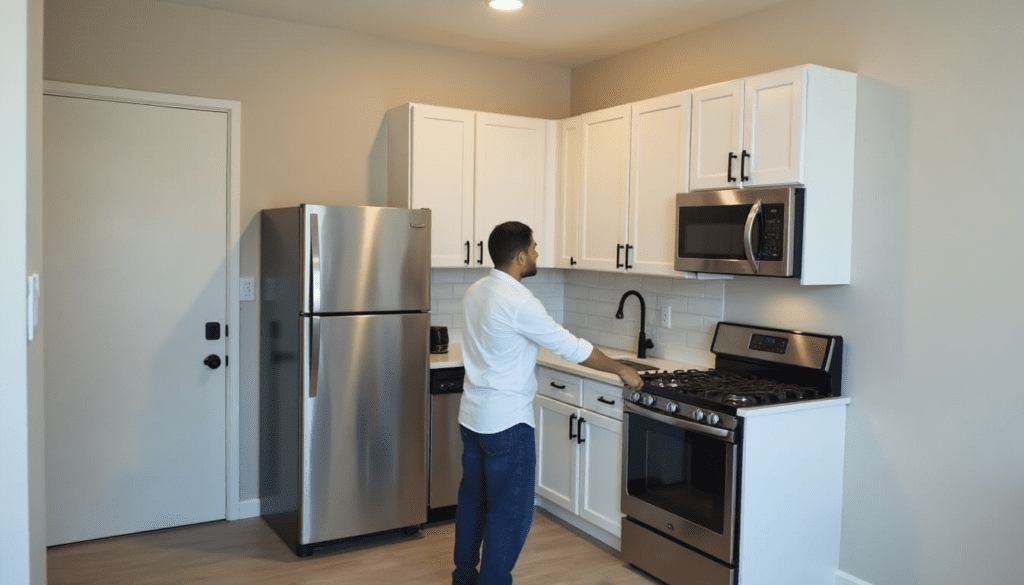For landlords in Passaic, New Jersey, one of the most frustrating and recurring challenges is dealing with tenants who consistently pay rent late. A few days here and there may not seem serious at first, but repeated late payments can disrupt cash flow, increase administrative burdens, and even threaten the stability of your rental property business. Worse, it can set a precedent that rent deadlines are flexible when they should not be.
New Jersey law provides specific rules about rent deadlines, late fees, and what is considered “habitually late” payments. To effectively manage late-paying tenants in Passaic, it’s crucial to understand both the legal framework and practical strategies that protect your rental investment. This guide walks you through the causes of late rent, your legal options, documentation practices, and notices landlords in Passaic should be familiar with.
Understanding Passaic, NJ Rental Market & Rent Timeliness
Passaic, NJ, has a diverse rental market where demand remains strong due to its proximity to New York City and accessible public transportation. However, the area’s mixed-income profile also means landlords frequently encounter tenants struggling to meet rent deadlines. Consistent late rent disrupts your financial planning and undermines the landlord-tenant relationship.
Unlike some other states, New Jersey law offers tenants certain protections, such as a five-day grace period for senior citizens receiving Social Security or federal pension income. That said, most tenants in Passaic are required to pay by the due date stated in their lease agreement, often the first of the month.

According to local property management data, a large percentage of disputes between landlords and tenants in Passaic stem from late rent payments. This makes it essential for landlords to stay consistent with lease enforcement and avoid sending mixed signals that lateness will be tolerated.
Why Tenants Pay Rent Late: Common Causes
Before taking action, it helps to understand why tenants are falling behind. In Passaic, common reasons include:
- Financial instability – job loss, reduced work hours, or unexpected expenses.
- Poor money management – some tenants simply fail to prioritize rent over other obligations.
- Waiting for assistance – tenants relying on housing assistance or government aid may experience processing delays.
- Personal hardships – illness, family emergencies, or other life events.
- Lack of payment options – tenants without digital rent payment choices may fall behind if they miss the window for in-person payments.
As a landlord, you are not required to excuse late payments due to these reasons, but recognizing them helps guide your response. For example, if a tenant has a one-time hardship, a short-term payment plan may resolve the issue. But if late payments are habitual, you need to escalate with formal notices under New Jersey landlord-tenant law.
Legal Framework in New Jersey: Grace Period & Late Fees
Landlords in Passaic must strictly follow New Jersey state rental laws when enforcing rent deadlines. Here are key points:
- Rent is due on the date stated in the lease – usually the first of the month.
- Grace period – seniors and federal benefit recipients may receive a 5-day grace period, but this does not apply to all tenants.
- Late fees – must be clearly stated in the lease. New Jersey law does not cap late fees, but courts expect them to be “reasonable” and not punitive.
- Habitual lateness – repeated late payments can be grounds for eviction, as established in cases like Carter v. Richardson.
This means that even if your tenant pays late but eventually catches up, you are still within your rights to take legal action if it happens consistently. Proper documentation and notices are key here.

Late fees should never be sprung on a tenant without prior agreement. Ensure your lease agreements clearly state the due date, grace period (if any), and the exact dollar amount or percentage that will be charged for late rent. If you don’t already have such language in your lease, consider reviewing your agreements. (See our related post: Crafting Lease Agreements That Work.)
What “Habitually Late” Means Under NJ Law
One of the most misunderstood concepts among landlords is the idea of a tenant being “habitually late.” In New Jersey, this does not necessarily mean a tenant is months behind on rent. Instead, it can mean a tenant has a consistent pattern of paying late, even if payments are eventually made in full.
According to Legal Services of New Jersey’s Tenant Rights Manual, habitual lateness can give a landlord grounds to issue a Notice to Cease. If the behavior continues, it may lead to eviction proceedings.
Court rulings emphasize that the landlord must prove this pattern with detailed records. For example, if a tenant has been late six out of the last eight months, you have strong grounds to act. But if lateness is occasional and explained by legitimate hardship, judges may lean toward giving tenants more time.
This is why careful record-keeping is vital. Always log the payment date, amount, communication with the tenant, and any fees charged. These records may make the difference in a successful eviction case.
How to Document Late Payments Effectively
Documentation is the landlord’s most powerful tool when it comes to dealing with late-paying tenants in Passaic, NJ. Without records, it becomes your word against the tenant’s. Judges expect evidence.
Best practices for documentation include:
- Keeping a rent ledger that tracks every due date, payment date, and balance.
- Saving copies of checks, money orders, or digital payment confirmations.
- Logging all communication with tenants about rent, including emails, texts, and notices delivered.
- Issuing formal receipts for all rent payments collected.
- Storing documents digitally for backup.
Having this information not only strengthens your case in court but also helps you identify early patterns before they become chronic. For example, if a tenant always pays on the 10th instead of the 1st, you can address the issue formally before it escalates.
For guidance on notices and record-keeping, see our related resource: NJ Eviction Process Explained.
Formal Notices: Notice to Cease & Notice to Quit
When tenants in Passaic repeatedly pay rent late, communication alone is rarely enough. At some point, landlords must begin the legal notice process to protect their property rights. In New Jersey, two critical notices apply: the Notice to Cease and the Notice to Quit.
The Notice to Cease is a written warning that tells the tenant their behavior—such as habitual late rent—must stop immediately. It does not end the tenancy but establishes a clear record that the landlord has addressed the problem. If the tenant continues to pay late after receiving this notice, you can escalate.
The Notice to Quit formally ends the tenancy and is the necessary precursor to filing an eviction case. Unlike some issues that allow immediate eviction filings, late rent requires this two-step process because New Jersey law views lateness as a pattern of behavior rather than a single violation.

Serving these notices correctly is critical. Always use written documents, keep proof of service, and follow the timeframes outlined by state law. For examples of properly structured notices, check out resources in our NJ Eviction Process Guide.
Implementing Late Fees & Penalties Legally
One of the most effective ways to discourage chronic late rent is through late fees. However, in Passaic and throughout New Jersey, landlords must ensure their late fee policies comply with state law and are enforceable in court.
Here are some best practices:
- State the fee clearly in the lease – vague wording like “reasonable late fee” may not hold up in court.
- Keep fees proportional – while NJ law doesn’t cap late fees, judges may strike down charges that appear excessive or punitive.
- Apply fees consistently – enforcing them for some tenants but not others weakens your position.
- Don’t backdate or surprise tenants – tenants must know upfront what to expect if they pay late.
For example, a $50 late fee after the 5th of the month is common and often upheld in Passaic landlord-tenant court. Charging $300 or more, however, could be challenged as unreasonable. Refer to Carter v. Richardson for guidance on how New Jersey courts interpret “habitual lateness” and related penalties.

If you’re drafting or revising leases, consider reviewing our resource on Creating Effective Lease Agreements to ensure late fee clauses are both enforceable and fair.
Communication: Talking to the Tenant
Before escalating to eviction, landlords in Passaic should make genuine efforts to communicate with tenants. Courts often look favorably on landlords who attempt to resolve issues outside of litigation. Moreover, clear communication can sometimes stop a problem before it grows worse.
Strategies include:
- Early outreach – if rent isn’t paid by the due date, contact the tenant within 24–48 hours.
- Written follow-up – always back up phone conversations with a written reminder or email.
- Stay professional – avoid emotional language or threats that could later harm your legal case.
- Offer solutions – if appropriate, propose short-term payment plans or suggest online rent portals to simplify the process.
For instance, a landlord might say: “We noticed rent for August was due on the 1st but hasn’t been received. Please let us know if payment is on its way. If you are experiencing difficulties, we can discuss possible payment arrangements, but continued late payments may result in notices.”

Document all communication. Courts in New Jersey expect landlords to demonstrate they gave tenants ample opportunity to correct their behavior before seeking eviction.
Payment Plans & Alternatives for Hardship Tenants
Not every late-paying tenant is acting in bad faith. Many in Passaic experience genuine hardship due to job loss, rising living costs, or family emergencies. Offering a payment plan can sometimes save a tenancy while still ensuring you collect the rent owed.
Some effective options include:
- Split payments – allowing tenants to pay half on the 1st and half on the 15th.
- Temporary deferment – delaying part of the rent with a signed agreement to catch up within 60 days.
- Rental assistance referrals – directing tenants to county housing aid programs or charities in Passaic.
Always put payment plans in writing. Outline the schedule, amounts, and consequences of non-compliance. For example, specify: “If the tenant fails to meet the modified payment plan, landlord reserves the right to proceed with legal action.”
By offering solutions, you protect yourself legally and demonstrate good faith if the matter escalates to court. Judges are more likely to side with landlords who attempted to work with tenants before eviction.
Using Online Rent Collection Platforms
One recurring reason tenants in Passaic pay rent late is inconvenience. Relying solely on checks or cash increases the likelihood of missed deadlines. Modern landlords are increasingly turning to online rent collection platforms that make payments easier for tenants and tracking easier for landlords.
Benefits of online platforms include:
- Automatic payments – tenants can set recurring transfers on the due date.
- Instant confirmation – both landlord and tenant receive digital proof of payment.
- Detailed records – integrated ledgers reduce paperwork and strengthen documentation.
- Multiple payment options – credit, debit, ACH, or even PayPal, giving tenants flexibility.
For landlords managing multiple properties in Passaic, adopting these tools saves time and reduces disputes. If you already use a property management service like RentShield, check if they provide an integrated payment system.

Implementing digital platforms can also eliminate excuses like “the check is in the mail.” It ensures tenants have no reason to miss deadlines unless they truly cannot pay, in which case you can act swiftly using the legal processes described earlier.
Enforcing Lease Terms & When to Escalate
At a certain point, communication and flexibility may no longer work. If tenants in Passaic continue to pay late even after reminders, notices, and payment plan offers, landlords must escalate by strictly enforcing lease terms. This protects your property’s financial stability and demonstrates to all tenants that policies are not optional.
Key steps include:
- Enforce late fees consistently – never waive them unless part of a written agreement.
- Issue written notices – a Notice to Cease should always precede a Notice to Quit for late rent.
- Document every violation – use a rent ledger and keep a copy of all communication.
- Seek legal support if necessary – especially if the tenant ignores multiple notices.
Escalation should be timely. Waiting too long may signal tolerance, while acting swiftly reinforces the seriousness of lease obligations. See our related guide on NJ Eviction Process Explained for a deeper breakdown of escalation timelines.
Eviction: Process, Risks & Realistic Expectations
Eviction is never a landlord’s first choice, but it is sometimes the only remaining option when late rent becomes chronic. In Passaic, New Jersey, eviction for habitual lateness follows a defined process governed by state law.
The steps generally include:
- Issuing a Notice to Cease – warning the tenant to correct their late payment behavior.
- Issuing a Notice to Quit – formally ending the tenancy if lateness continues.
- Filing an eviction complaint – bringing the case to landlord-tenant court.
- Attending the hearing – presenting documentation of late payments and notices.
- Enforcement – if the court rules in your favor, the sheriff enforces the eviction.
Risks include delays due to court backlogs, potential appeals, and the financial burden of unpaid rent during the process. However, with proper documentation and adherence to legal procedures, many landlords in Passaic succeed in regaining possession.

Always weigh whether eviction is worth the cost and time. In some cases, negotiating a voluntary move-out may be faster and less expensive.
Balancing Firmness with Compassion
Being a landlord in Passaic requires more than strict enforcement—it also calls for judgment and compassion. Tenants are people, and while some may exploit leniency, many face genuine financial struggles.
Tips for balancing firmness with compassion include:
- Listen actively – give tenants space to explain before deciding on next steps.
- Be transparent – communicate your own constraints, such as mortgage deadlines.
- Offer solutions with limits – payment plans, but only with clear end dates.
- Maintain consistency – fairness means applying rules evenly across all tenants.
This balance helps maintain good landlord-tenant relationships and can improve retention of reliable tenants who may have occasional issues. Judges also appreciate landlords who show they’ve acted reasonably before pursuing eviction.
Preventive Screening & Setting Expectations Early
The best way to avoid chronic late rent is prevention. Careful screening and clear lease expectations set the tone from the very beginning of the tenancy.
Prevention strategies include:
- Thorough screening – check income, credit, and rental history.
- Verify references – call prior landlords and confirm payment patterns.
- Detailed lease agreements – spell out due dates, grace periods, and late fees.
- Onboarding tenants – review lease terms in person so nothing is overlooked.
For help building stronger agreements, see our guide on Creating Effective Lease Agreements That Work. By setting clear expectations upfront, landlords reduce the risk of late payments down the road.

Resource & Support Tools for NJ Landlords
Landlords in Passaic don’t have to manage late rent issues alone. Several resources and tools are available to simplify the process and provide guidance:
- NJ Department of Community Affairs – official state guidance on landlord-tenant laws.
- Legal Services of New Jersey Tenant Rights Manual – in-depth overview of tenant and landlord obligations.
- Carter v. Richardson analysis – case law on habitual late payments.
- Passaic Rental Market Trends 2025 – insights on tenant behavior and local rent patterns.
Using these resources ensures landlords remain compliant with state law while taking effective, proactive steps.
Sample Templates: Late Notice, Payment Plan, Cease Notice
Finally, landlords should always keep professional templates ready. Having the right wording ensures compliance with New Jersey law and demonstrates professionalism. Common templates include:
- Late Rent Reminder Notice – informal written reminder sent within a few days of nonpayment.
- Payment Plan Agreement – outlines modified rent due dates and amounts.
- Notice to Cease – official warning against habitual late payments.
- Notice to Quit – termination of tenancy if lateness continues after a Notice to Cease.
While sample forms are widely available online, it is always wise to adapt them for Passaic-specific circumstances and review them with legal counsel when possible. This protects you from technical errors that could invalidate the notice.

Need help creating custom notices and agreements? Explore our NJ Eviction Process Resource Center for guidance.
Final Thoughts: Managing tenants who consistently pay rent late in Passaic, NJ requires a blend of legal knowledge, documentation, and strong communication. By enforcing lease terms, using notices correctly, and balancing firmness with compassion, landlords can protect their property while remaining fair to tenants. With preventive screening and modern rent collection tools, you can reduce late rent issues before they start.
If you are struggling with late-paying tenants, consider downloading our Passaic NJ Late Rent Toolkit or reach out to RentShield for hands-on support with notices, lease drafting, and property management solutions.






